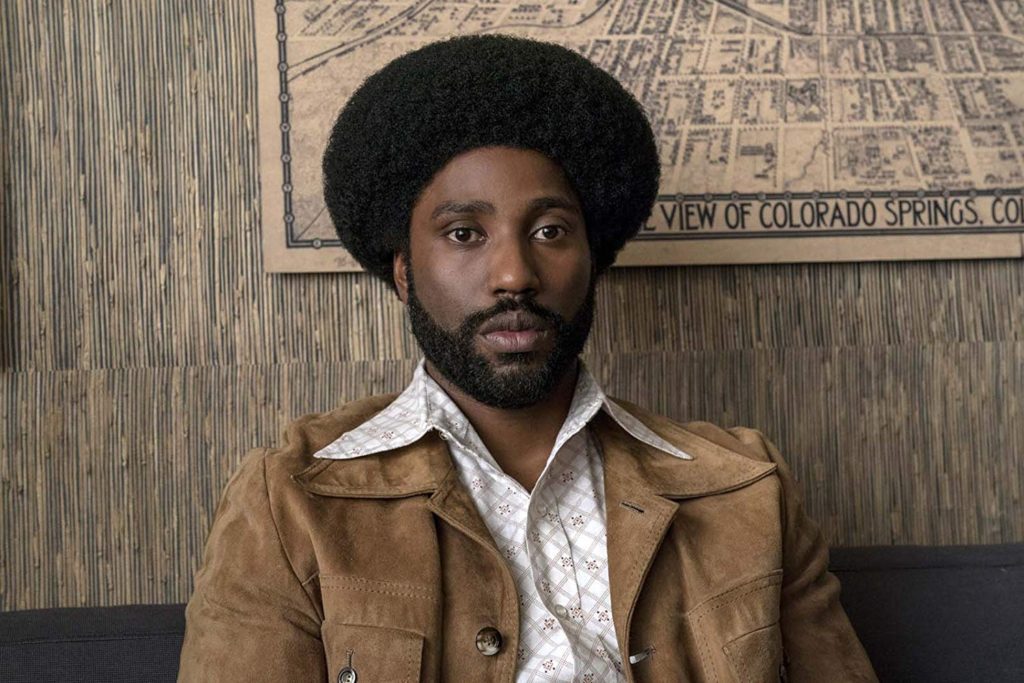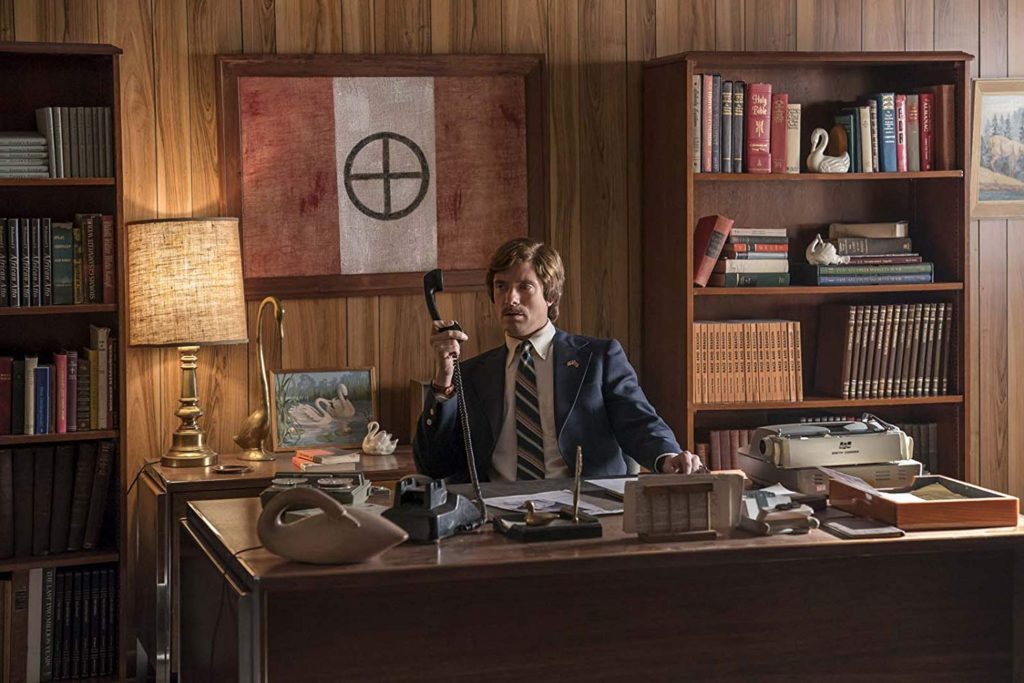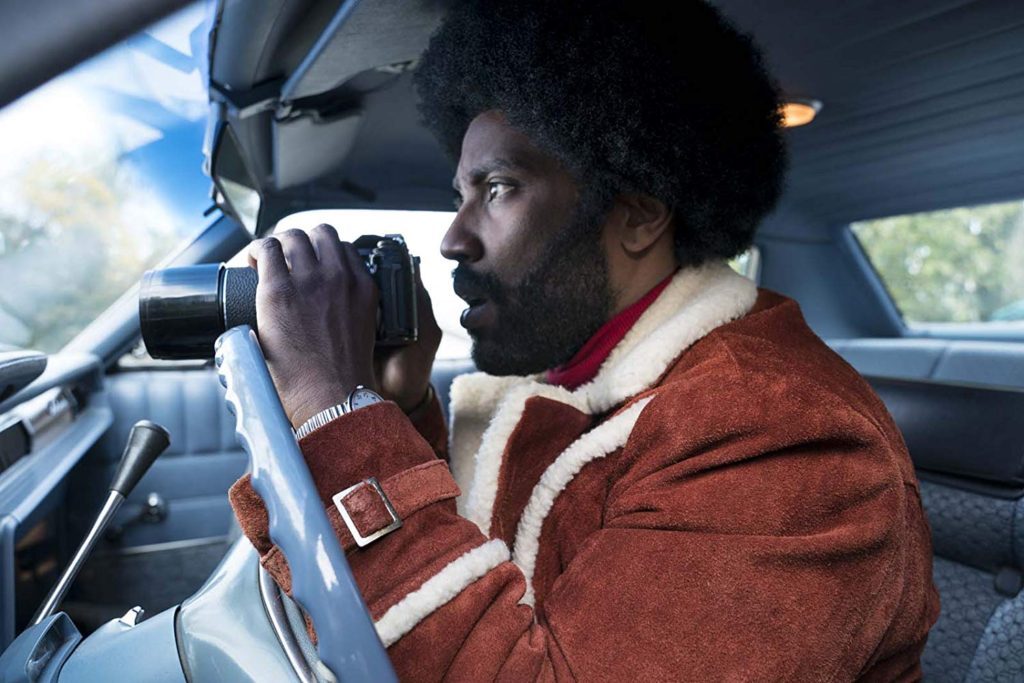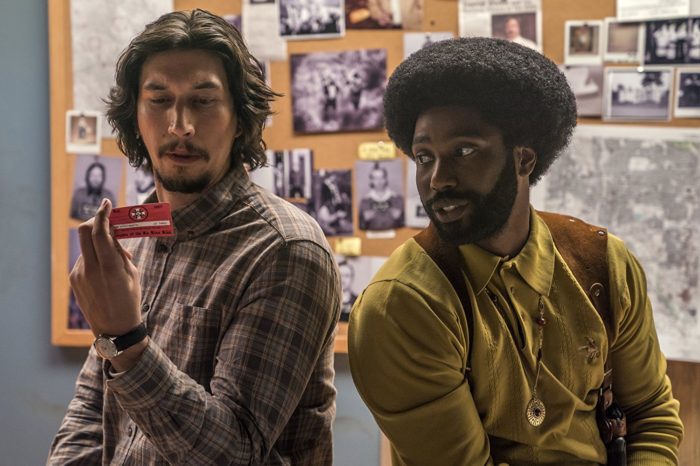Being quite frank, absolutely none of Spike Lee’s newest film BlacKkKlansman should work – plot or cinematography. Hollywood newbie John David Washington, son of film icon Denzel Washington, leading a cast including the likes of Adam Driver, Topher Grace, and Jasper Pääkönen, all far more experienced than him? The inclusion of an unreleased Prince recording playing as the audience leaves the cinema, rendering them unable to fully appreciate it? Black Colorado Springs P.D. officer Ron Stallworth successfully infiltrating the Ku Klux Klan at its highest levels and not being killed?
In theory, it all seems ludicrous, misguided even. Yet, through utilising the factors that have brought African-American filmmakers back into the limelight in recent years, Lee delivers an engaging, relevant piece about respect, difference and family that blends humour with tragedy to make a poignant statement about the timelessness of prejudice.

The very first of these factors that BlacKkKlansman makes work is its script. Adapting the real Ron Stallworth’s autobiographical book of the same name, an uncompromising sense of reality is constantly present – making the audience receptive to the stereotypically passionate young black activists, racist 1970s police officers, and even more racist characters of the Ku Klux Klan. Such receptivity comes not only from the script’s script’s ability to develop each of the major cast in their very different journeys with race, but also humanise their struggle throughout. A dark, nuanced comedy arises the more we see Ron, putting on his best impression of a ‘white’ voice, belittling blacks, Jews, Mexicans, and ‘anyone else without pure white Aryan blood’ in conversations with Klan Grand Wizard David Duke (Topher Grace). However, by the same token, the relaxed nature of these lines keep the audience shocked with the fact no other character reacts whatsoever to them, making such dialogue seem almost normal. It’s gripping writing.
This gripping writing is brought to life by equally gripping acting. Though John takes time to ease into the three-dimensional role of Ron, and the audience feels this, Adam Driver as the begrudgingly acquiescent cop Flip Zimmerman steals the show with his eclectic performance – creating great chemistry with both the police force he works with and the Klan members he infiltrates as the white Ron Stallworth. All actors portraying the Klan deserve praise for transforming the controversial organisation from a simple collection of seemingly harmless friends, emphasized in Ryan Eggold’s Ned Flanders-esque characterization of Klan Chapter leader Walter Breachway, to what the audience expects, and back again. They are so likable the audience feels guilty to admit it – a testament to a highly impressive all-round performance. Unfortunately, however, the audience sees little of the third main party in the film: young college-age activists led by the fiery Patrice Dumas (Laura Harrier). After the first 30 minutes, their role becomes lost in the complexities of the movie’s subject matter and the Ron-Patrice love subplot subsequently feels like a forced-but-necessary addition for a ‘have-it-all’ Hollywood movie.

The final decisive factor to this film’s success is Spike’s ability to work in small, but crucial directorial decisions that subconsciously heighten our experience. Presenting a romanticised portrait of the ‘70s is certain to provoke nostalgia in some; subtly slanting camera angles to elicit visual discomfort at random points; inputting snippets of monochromatic white propaganda films for our reference; and linking the film’s themes to the modern day in a final montage that can only be described as brilliant. He justifies his Honorary Academy Award without question by simply putting everything together – and making it work.
So what can we, as an Australian audience, take from this story of American prejudice?
Quite a lot, actually. Bar the need to introduce Colorado Springs as the setting for the film, there’s an eerie similarity between the physical locations Ron and company find themselves in with the Australian landscape. Open fields prime for shooting practice, dimly-lit pubs popular with the working-class, and under-sized community halls where activist ‘revolutionaries’ gather are only Americanised by the voices of the cast; they are reminiscent of the places I’ve been as a regional kid.
There’s even something about the characters that reek of Australia. In the film, the inclusion of the KKK is simply there because it’s what actually happened. Sure the Klan isn’t prominent here, but what about the Australia First Party, whose core policies include ‘Abolish Multiculturalism’ and ‘Reduce and Limit Immigration’? What about the White Australia policy, which separated hundreds of thousands (if not millions) of coloured children from their families for generations? When these factors are considered, we shamefully associate with the Klan members. This shame is only compounded as we grow to know these characters better – the always drunk Ivanhoe (Paul Walter Houser), seemingly harmless Walter, and constantly on-edge Felix are easily caricatures of the kind of people that dominate Australia, driven by an intense lust for solidarity and domination.

Without giving too much of the ending away, because it is by far the film’s cherry-on-top, the best thing an Australian audience can take from this film is its enduring relevance to society. Just like race relations in America are as strained as they’ve ever been, so too is this the case in Australia. Since Kevin Rudd’s 2008 apology, Indian immigrants have not been able to obtain 457 visas due to their race; Indigenous communities remain socially stratified, filling up our prisons instead of our society; immigration practises keep asylum seekers stranded and White Anglo-Saxon Protestants prioritised, making for a society equally as troubled (if not more) by our conservatism. That’s the ultimate reason this film resonates with us – there’s just so much to empathise with, when the pointy hats and white robes are removed and the deeply-ingrained segregationist hatred within each character is revealed.
Ultimately, Spike Lee’s BlacKkKlansman manages to achieve the rare feat of making a Hollywood movie that can appeal to both critical and commercial audiences alike, creating cinematic art from circumstances that would, in many other directors’ hands, simply not work. However, its ability to elicit a unique responsiveness from an Australian audience underlies its true power, making comments not just on American racial issues, but those particularly evident in our society too, making for a powerful piece of film.

